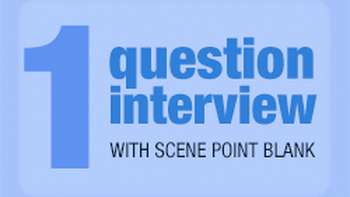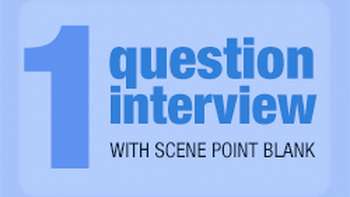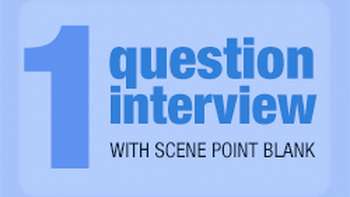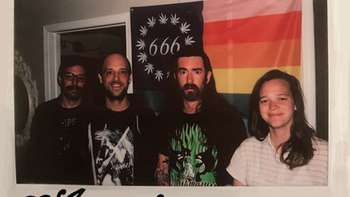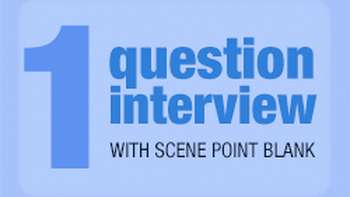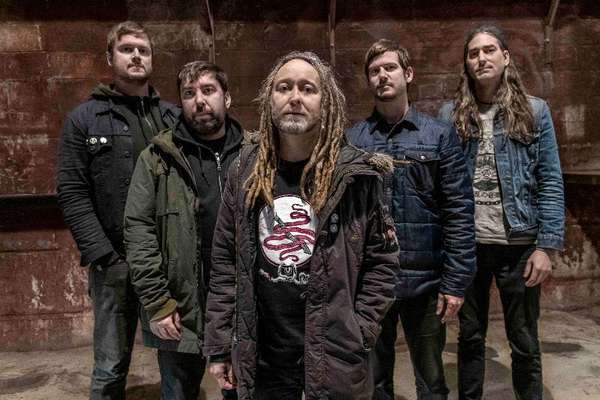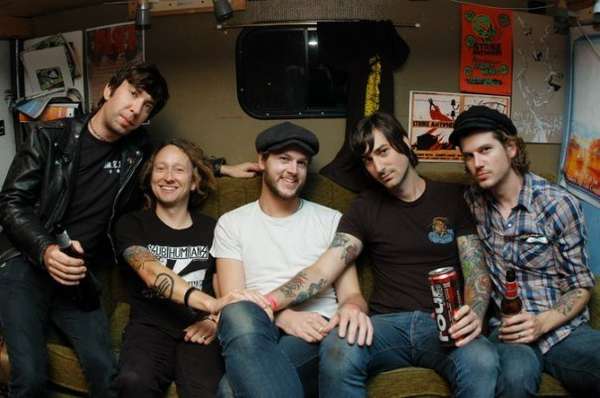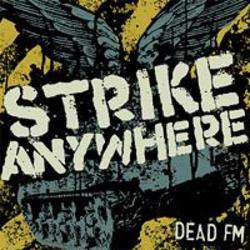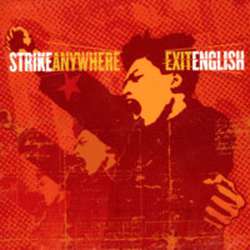
Scene Point Blank: It seems like every band lately is becoming political, like even Green Day who never had political ideals before. Do you feel this is diluting the message of Strike Anywhere?
Thomas Barnett: I don't know. I mean, Green Day came from the East Bay punk scene, and they were surrounded by incredible bands like Operation Ivy and things like that, those were their people, their peers. To me, it made more sense that that record [American Idiot] didn't seem that out of place, even though they'd never written songs like that before, as people I just imagine that it felt natural, maybe they just reached a boiling point and realised they had to make a political record, because times were just crucial. And that's pretty respectable, I think. I don't know, it doesn't have much to do with what we do. We definitely come from a political punk scene and a movement, and it's something we believe in and want to build, but other punk bands are doing other things in other worlds away from this.
I think it's the gateway theory, and maybe that's naive, but I think folks could listen to American Idiot, because that's like, the best-selling record in America, and the cool kids at their high school are listening to it, so they can also listen to it and find other punk bands to get into; maybe they'll get into Anti-Flag after that; maybe they'll get into Fat Wreck Chords bands after that, and then finally they'll be putting on shows in their basement and listening to Discharge reissues. That's the real cause and affect. Me and Matt Sherwood in our band are 33, and we are the last part of the punk generation before 1993, who got into it before Green Day and Rancid broke into the mainstream... before Nirvana. So, after that it's all open for people to get into aggressive music that has punk roots, at least, through whatever, the mainstream radio, music videos, and then continue to dig deeper. And it's also the way that you can embrace this on whatever level.
In the late 80s when I got into this, you were just gonna get beat up, for having funny hair, for listening to this music. There was nothing remotely mainstream about it. College radio stations, they had like one show once a week at 2am on a Saturday night that reached about 1200 houses or something. It's the kind of thing where you really had to search for it; it just seemed like it was close to death. And now it seems like punk is always there in the mainstream now in some way, but as long as those bands have some integrity and have some heart, they can open up these gateways for the rest of us that are doing this in different stages of being operationally pure.
Scene Point Blank: The Dead FM booklet has a quote about "building a new society in the physical and psychic wastelands". Could you elaborate on that theme?
Thomas Barnett: That's a big part of Dead FM. It's not just about the physical fallout from all of this economic injustice and the push for globalisation; it has a lot more to do with the social realities and psychological issues that happen, like having songs about child abuse and dysfunctional families, and about the roots of all of this. Not just because people voted wrong, but because our educational system is flawed, in the hands of consumer capitalism and those kinds of competitive and adolescent things. It's more like, there's many many things that have been wrong for a long time that we have to look at. This is the part of our music and our band that reaches into the personal hardcore culture of coming to terms with your traumas and trying not to repeat them in future for the next generation. I guess those would be the psychic wastelands.
We're living in communities devoid of real history, and people are just living in this infinite present of this desperate competition with everyone thinking this individualist dream of "the rest of the people around me, they've gotta get theirs and I've gotta get mine". Outrun each other, outdance each other, outconnive each other. I think that the rat race is getting so crazy and there's so many venues for people to compete and to lose touch with themselves and the things that they love; connecting with other folks. So I think that's why there's so much depression. Attention Deficit Disorder; all this obsession with entertainment and distraction - every moment that you have not working two jobs, trying to figure out how you're gonna pay for healthcare or university - in the States there's no free university and there's no healthcare - so if you're on that edge and still think you're entitled to the fanciest a car and a new TV every two months and all that stuff, you're just not really embracing any of your soul any more. There's a bit of that being lost out here too. In the US it's like, having fun is something that can really heal you and make you positive, like an anti-depressant.
Scene Point Blank: Dead FM is about censorship, government control and the media. How do you think websites like Myspace/YouTube are affecting this? Do you think they're revolutionising the media?
Thomas Barnett: I do. Laughs. I think it's awesome. We really like utilising the internet, and people trading ideas and music and film and things like that: it's great. Having a moment where everyone can take possession of a camera and take their perspective and put it out there, it might help all of us as a society. And certainly we're not dependent on one media anymore. I think in some ways that's very dangerous, because it makes everything very relative, but I also think it's possible for people to come to consensus, and get a lot of clear, multi-dimensional understandings of things, whereas before it was just whatever the media barons decide to tell us.
Scene Point Blank: Although Rupert Murdoch owns Myspace, though...
Thomas Barnett: Yeah, Myspace is different. It's another way of having a more interactive website, sort of like there's a place for free music, people can talk to each other in these different little forums, and I think it's okay. I don't love it particularly, but I think YouTube is really interesting, it has that freshness and rawness. We did a lot of tiny films on YouTube about making Dead FM in the studio, they're somewhere on there.
Scene Point Blank: The song "House Arrest" on Dead FM talks about being imprisoned in Japan while trying to cross the border. Does that make it hard to go back, since you guys are touring there soon?
Thomas Barnett: No, we've been back there successfully since that song was written. That happened in 2003 and we went back to Japan in 2005 and had a good tour. What we had to do, though, was go to Australia first, get the Japanese consul in Sydney to do the thing that needed to happen at the border two years before but didn't, and the work visas were put over the top of our rejection stamps that would have red flagged us again had we tried to go through without them. And then we got in fine, had a great tour, it was so much fun. We worked with the same promoter, it was really good to finally see him. We were all very choked up when we got through, when we got across the point where we taken the last time. There was this huge wave of relief.
